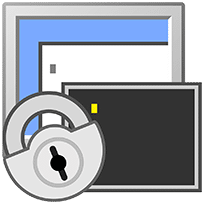SecureCRT is a powerful and versatile terminal emulation software developed by VanDyke Software. It is widely recognized as an essential tool for system administrators, network engineers, and IT professionals who require secure, efficient, and reliable remote access to network devices, servers, and systems. In this article, we will delve into the world of SecureCRT, exploring its functionality, applications, and the crucial role that proxy servers, particularly those offered by OneProxy, play in enhancing its performance and security.
What is SecureCRT Used for and How Does it Work?
SecureCRT serves as a comprehensive terminal emulator that facilitates secure remote access to various network devices, such as routers, switches, Unix/Linux servers, and Windows servers. It enables users to establish secure connections through protocols like SSH (Secure Shell), Telnet, and serial.
The primary features and functions of SecureCRT include:
-
Secure Connectivity: SecureCRT prioritizes data security by offering robust encryption algorithms like SSH2, ensuring that sensitive information remains confidential during remote sessions.
-
Session Management: It allows users to organize and save sessions for quick and convenient access to remote devices, streamlining workflow efficiency.
-
Scripting and Automation: SecureCRT supports scripting languages like VBScript, JScript, and Python, enabling automation of repetitive tasks and customizing terminal behavior.
-
Tabbed Interface: Multiple sessions can be managed in a tabbed interface, simplifying navigation and multitasking.
-
Advanced Terminal Emulation: It provides an authentic terminal experience with support for ANSI color, Xterm 256-color, and a wide range of terminal types.
Why Do You Need a Proxy for SecureCRT?
SecureCRT is an invaluable tool for remote system administration, but there are scenarios where using a proxy server becomes essential. The need for a proxy server in conjunction with SecureCRT arises from various considerations:
-
Enhanced Privacy: Proxy servers, such as those offered by OneProxy, act as intermediaries between your device and the target server. They mask your IP address, enhancing anonymity and privacy during remote sessions.
-
Geo-Restrictions: Some network devices or services may be geo-restricted, limiting access based on your geographical location. Proxies can bypass such restrictions by routing your traffic through servers in different locations.
-
Security: Proxies can add an extra layer of security by filtering and inspecting incoming and outgoing traffic, detecting and blocking malicious content or threats.
Advantages of Using a Proxy with SecureCRT
Utilizing proxy servers, especially high-quality ones like OneProxy, offers several distinct advantages when using SecureCRT:
-
Anonymity: Proxies obscure your real IP address, making it challenging for external entities to trace your online activities back to you.
-
Geo-Unblocking: By connecting to proxies in various locations, you can access remote devices and services that might otherwise be restricted due to geographical limitations.
-
Load Balancing: Proxies can distribute network traffic across multiple servers, optimizing performance and reducing latency during remote sessions.
-
Security: OneProxy and similar services employ robust security measures, safeguarding your data from potential threats during remote access.
-
Scalability: Proxies accommodate scaling needs, ensuring seamless access to an increasing number of remote devices and services.
-
Logging and Monitoring: OneProxy often provides detailed logs and monitoring tools, allowing you to track and analyze network activity for auditing and troubleshooting purposes.
What Are the Сons of Using Free Proxies for SecureCRT?
While free proxies may seem appealing, especially from a cost perspective, they come with notable disadvantages:
| Cons of Free Proxies |
|---|
| 1. Unreliable Performance: Free proxies often suffer from slow speeds and frequent downtime, hindering the efficiency of SecureCRT sessions. |
| 2. Security Risks: Many free proxies lack the security measures necessary to protect your data, potentially exposing you to cyber threats. |
| 3. Limited Locations: Free proxies typically offer a limited number of server locations, restricting your ability to bypass geo-restrictions effectively. |
| 4. Data Privacy Concerns: Some free proxies may log your online activities, compromising your privacy. |
What Are the Best Proxies for SecureCRT?
When it comes to choosing the best proxies for SecureCRT, reliability, security, and performance should be your top priorities. OneProxy, as a leading proxy service provider, stands out for the following reasons:
| Advantages of OneProxy |
|---|
| 1. High Performance: OneProxy offers high-speed, low-latency connections, ensuring smooth and efficient remote access with SecureCRT. |
| 2. Global Coverage: With servers in various locations worldwide, OneProxy enables you to bypass geo-restrictions and access remote devices effortlessly. |
| 3. Security Features: OneProxy implements advanced security measures, including encryption and threat detection, to protect your data during remote sessions. |
| 4. Reliability: OneProxy boasts excellent uptime and minimal downtime, ensuring uninterrupted access to network devices. |
| 5. User-Friendly Interface: OneProxy provides a user-friendly dashboard for easy management of proxy configurations. |
How to Configure a Proxy Server for SecureCRT?
Configuring a proxy server for SecureCRT is a straightforward process. Follow these steps:
-
Obtain Proxy Server Details: Sign up for a proxy service like OneProxy and gather the necessary details, including the proxy server’s IP address and port number.
-
Open SecureCRT: Launch SecureCRT on your local machine.
-
Navigate to Session Options: Click on “File” > “Connect” in the SecureCRT menu, then choose “Session Options.”
-
Configure Proxy Settings: In the “Session Options” dialog, go to the “Proxy” category. Enter the proxy server’s IP address and port number in the respective fields.
-
Authentication (If Required): If your proxy server requires authentication, provide the username and password in the appropriate fields.
-
Save and Connect: Click “OK” to save your proxy settings. Now, when you connect to a remote device using SecureCRT, your traffic will be routed through the configured proxy server.
In conclusion, SecureCRT is a crucial tool for remote access and system administration, and when paired with a reliable proxy service like OneProxy, it becomes even more powerful. By prioritizing security, privacy, and performance, you can ensure seamless and secure remote sessions, whether you are managing network devices or accessing geo-restricted services.













